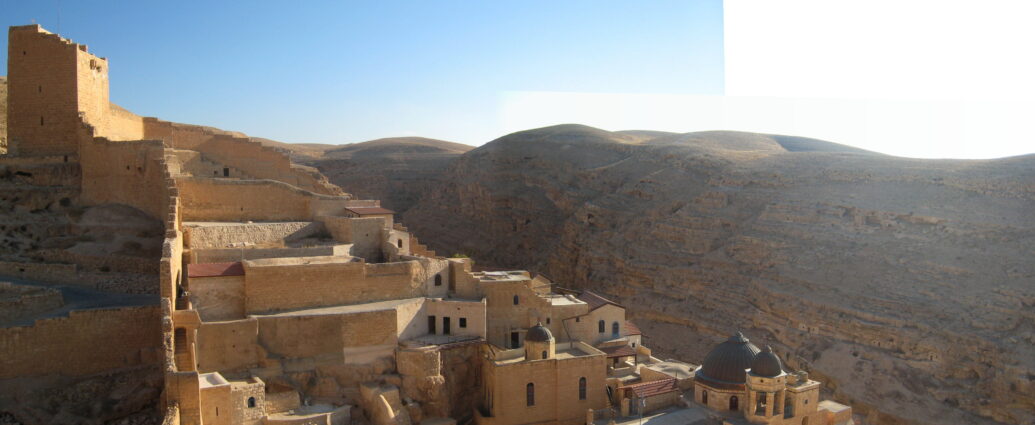Michaela Cullen
The new Jordanian film Farha has been greeted with controversy. The Israeli government, media, and individuals are boycotting Netflix and taking to social media to demand the film’s departure from the streaming site. However, Farha, directed by Darin J. Sallam, tells a story that needs to be told.
Plot
Sallam’s feature debut captures the harrowing accounts of the 1948 Palestinian ‘Al-Nakba‘ (‘the catastrophe’) through an all-encompassing and disorienting frame of war. She retells the story of a young girl, whose dreams of attaining an education are destroyed by the ethnic cleansing of her village.
“undoubtedly a very important watch”
The film could be described as difficult yet bittersweet viewing at times, but is undoubtedly a very important watch. It is storytelling at its best, combining beautiful cinema with a heart-breaking narrative to convey an awful atrocity which shaped the history of Palestine.
Farha dreams of education outside of her village and joining her best friend in the city for school. Once her father is convinced, the excitement of this new adventure is completely disrupted by the attack of Zionist forces. While her friends flee, Farha stays with her father, the village mayor, who is determined to help his people. Her father locks an apprehensive Farha in a cupboard and promises to soon return, but she remains in there for days (about 50 minutes of the film), with her only vision of the outside world coming through the holes in the door. When she finally breaks herself free, she emerges to see her home in ruins.
Memorable Scenes
“capturing the alienating and traumatic consequence of war”
Every cinematic decision is executed to perfection; screenplay, direction, music, cinematography. Every scene serves an emotional purpose, capturing the alienating and traumatic consequence of war.
The cupboard scene remains engraved in my mind. Farha is locked in the cupboard, peeking through the cracks in the door to see a family. A mother is giving birth, with a father and two daughters who are all hiding from the Zionist military. Farha smiles with them as they welcome their beautiful son into their lives, and then watches as the family are lined up and executed by soldiers, their blood stained on the walls of her home. It is here that her childish naivety is lost. All hope for her education, her village, and her father, slips away, as she remains trapped and alone.
Reminder Of History
We are reminded that the account of Farah’s experience during the Nakba is a true portrayal at the end of the film. Knowing that all of the events witnessed were real makes the film feel more harrowing, and allows it to appear much more heightened in significance.
“relevantly recounts history and reminds us of the conflict that still occurs today”
Sallam tells a story that is far too often looked over in Western cinema, as she relevantly recounts history and reminds us of the conflict that still occurs today.
Controversy
Since the film’s premiere screening at the Toronto International Film Festival last year, followed by many screenings throughout this year before its’ Netflix release, Israeli officials have aimed to have the film completely erased from our screens.
In a statement, Israel’s outgoing finance minister, Avigdor Lieberman, said : “It’s crazy that Netflix decided to stream a movie whose whole purpose is to create a false pretence and incite against Israeli soldiers.”
In response, the film team released a statement on Farha’s promotional Instagram page saying: “We, the films team, condemn all the accusations to discredit Farha…we also condemn the onslaught of hateful messages, harassment, accusations and bullying by Israelis that are targeting the film’s director on social media and on other outlets”
“We will not condone any harmful threats to any member of FARHA’s team.”
“The film exists, we exist, and we will not be silenced.”
The Story of Its Victims
At just over 90 minutes long, Farha captures the emotive and harrowing history of the Palestinian-Israeli conflict, displaying the story of its victims.
For this reason, the film is Jordan’s nomination for the 95th Academy Awards International Feature Film category for 2023. An exciting future awaits for both the film’s cast and crew, as a history that has been neglected for far too long by cinema is here to stay, despite attempts to have it erased.
Featured image courtesy of no_mad on Flickr. Image license found here. No changes were made to this image.

